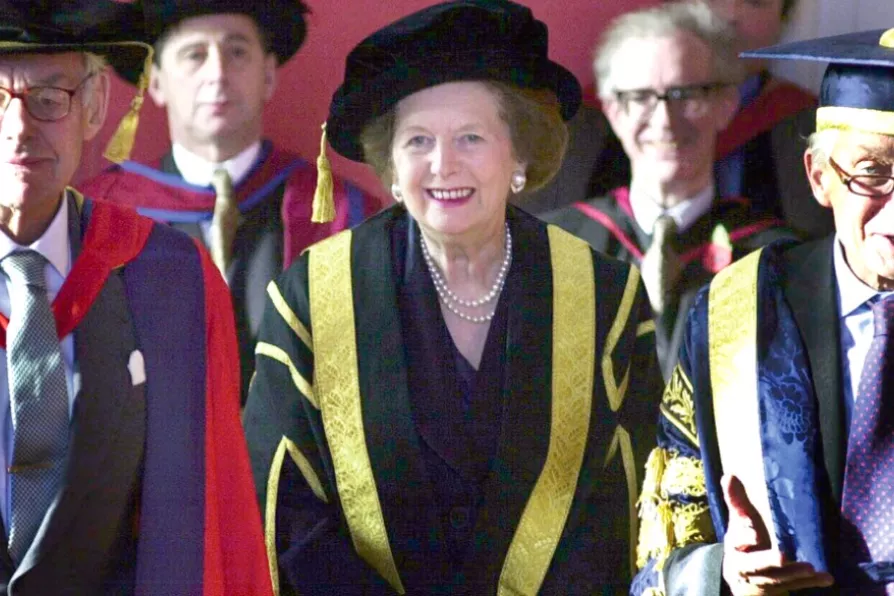The Carpathia isn’t coming to rescue this government still swimming in the mire, writes LINDA PENTZ GUNTER
The strange tale of Buckingham University and the Thatcherite right
Reminiscent of the ‘Buffy’TV series the demons all come from one academic institution, they make a lot of noise, but they are all beaten by a gang of teenagers, who rely on a rather calm, older intellectual for guidance – where Corbyn plays the role of Giles the Librarian, read on...

 what’s good for the goose is good for the gander : (Above) Denis Thatcher (left) receives his first honorary degree from the University of Buckingham in November 2000 and (right) Margaret Thatcher gets an honorary degree of Doctor of Laws from the same institution in February 1986 – 10 years after elevating it from college to university status
what’s good for the goose is good for the gander : (Above) Denis Thatcher (left) receives his first honorary degree from the University of Buckingham in November 2000 and (right) Margaret Thatcher gets an honorary degree of Doctor of Laws from the same institution in February 1986 – 10 years after elevating it from college to university status
SWITCH on the radio, look in the newspaper and see something nasty coming out of a university? Take a close look and you might see that it isn’t often just any old university. It’s the University of Buckingham.
Radio 4 have got a “University Leader” to say why Lecturers and Librarians should not go on strike. Oh look, it’s Anthony Seldon, vice-chancellor of the University of Buckingham.
A professor is trying to support the Sun’s absurd story about Corbyn being a Czech spy? It’s Professor Anthony Glees of the University of Buckingham.
Similar stories

Israel’s number one death dealer supplying the IDF in its murderous campaigns against the Palestinians is now actively wining and dining our military top brass, looking to flog its blood-soaked wares, reveals SOLOMON HUGHES

Detailing the deluge of delusion and dishonesty pushed by the pro-war camp, IAN SINCLAIR identifies four key tactics corporate journalists use to confuse audiences and suppress opposition to the proxy war in the east

Health Secretary Wes Streeting taking £53k from Tory-linked recruiter and outsourcer Peter Hearn’s OPD Group is a great example of how Labour’s rich donors shape policies targeting the poor – not their wealth, writes SOLOMON HUGHES

Despite using female spokespeople for its campaigns against clinic buffer zones, ADF UK’s board consists entirely of men, with 80 per cent living outside Britain and most funding from its US parent, reveals SOLOMON HUGHES











